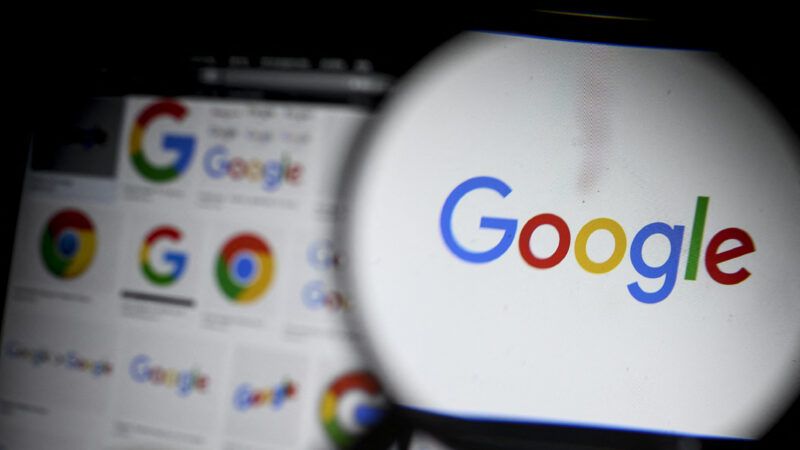Dozens of States Just Sued To Break Up Google. The Biggest Losers Would Be Consumers.
If the lawsuit were to succeed, it would hurt the people it seeks to help.

A group of state attorneys general filed an antitrust lawsuit against Google today, alleging that the company maintains monopoly control over internet search via competition-squashing behavior.
The complaint, brought by 38 states and U.S. territories, hones in on three core tenets of Google's "anticompetitive conduct": establishing partnerships with other tech companies in related markets, limiting advertising interoperability with competitors, and prioritizing their own products and services in search results.
"Our economy is more concentrated than ever, and consumers are squeezed when they are deprived of choices in valued products and services," said Colorado Attorney General Phil Weiser in a statement. "Google's anticompetitive actions have protected its general search monopolies and excluded rivals, depriving consumers of the benefits of competitive choices, forestalling innovation, and undermining new entry or expansion."
But it would be consumers that would suffer most from the government meddling with Google.
It's true that the tech giant maintains the biggest share of internet search, with current estimates landing at 88 percent. That's not for lack of options: Bing, DuckDuckGo, Yahoo!, OneSearch, and others provide viable alternatives, should consumers want to use them.
The lawsuit counters that by partnering with companies to make its search engine the default tool, Google has made it impossible for those rivals to penetrate the market. In so doing, users on Apple computers, for instance, can access search results courtesy of Google by typing directly into the search bar instead of manually navigating to Google's homepage first. The company has done the same in pairing with firms producing connected cars and other voice-assisted technologies.
But Google achieved search dominance before it established those partnerships. "Those of us who hark back to the old days, when you had to first type 'www.google.com' to perform a search," writes Megan Mcardle at The Washington Post, "will recall that that's exactly what people did, even if another search engine was the default." In January 2010, prior to the advent of voice-connected cars, the company controlled 90.77 percent of the search market—slightly more than what it has today. Forcing Google to relinquish their deals with other companies, then, would likely not have a significant impact on search dominance, but it would make things less convenient for the customer.
The suit also zeroed in on Google's propensity to promote its own adjacent products at the top of search results. A query for a particular restaurant, for instance, will likely prioritize the Google Maps link and location at the top of the fold, above, say, a link to Yelp and TripAdvisor reviews.
But if the solution to that is to break up the company entirely, consumers again will suffer the brunt of that blow.
"Demanding Google stop providing direct answers and relevant information in searches to instead make users go through lists of websites will only degrade the experience and make it harder for consumers to find what they seek," argues Carl Szabo, vice president and general counsel of the trade association NetChoice. "If successful, this lawsuit would make it harder for users to search for answers online and small businesses to reach customers by hiding contact information and facts behind clicks and paywalls."
Today's action follows on the heels of a lawsuit filed in October by the Department of Justice and 11 states, which similarly failed to show tangible consumer harm and instead reverted to criticizing Google's bigness. Though that complaint was filed by the Trump administration, its reasoning sounded more suited to the left, where free markets take a back seat to trying to make everything as fair as possible. And with the government in charge of ensuring fairness, you're less likely to make things fair and more likely to hurt the people you're trying to help.


Show Comments (111)